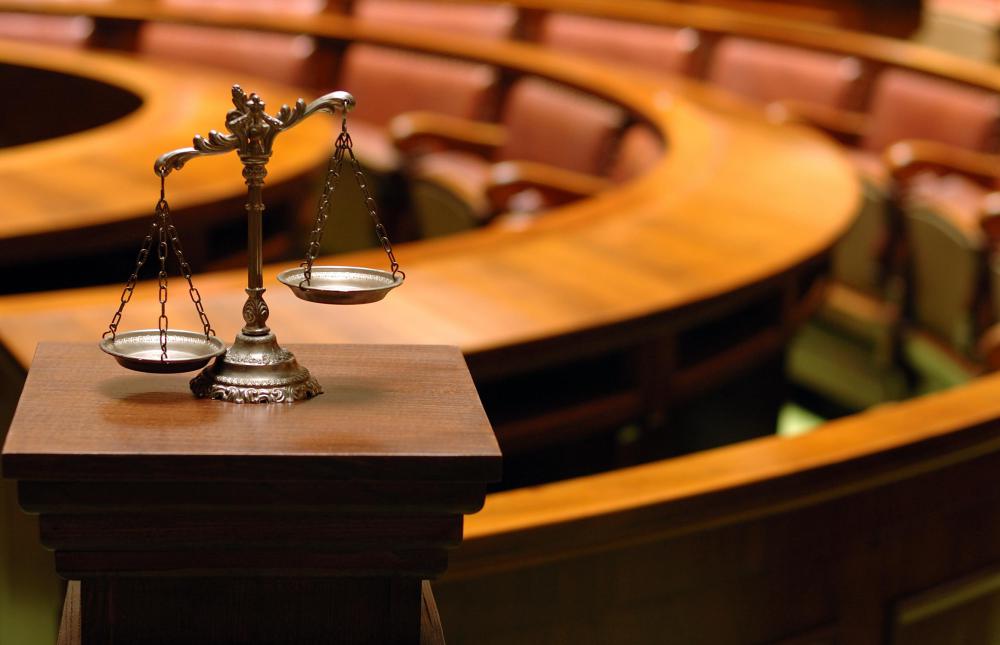At WiseGEEK, we're committed to delivering accurate, trustworthy information. Our expert-authored content is rigorously fact-checked and sourced from credible authorities. Discover how we uphold the highest standards in providing you with reliable knowledge.
What is Felony Court?
A felony court is a court that hears felony cases. Often called circuit courts and sometimes district courts, these courts handle cases that involve the most serious types of crimes. For example, a felony court typically handles cases that involve murder, kidnapping, rape, and manslaughter. It may also handle cases involving felony theft and battery as well as some types of fraud. These cases, as well as those involving other felony charges, are considered more serious than misdemeanor charges and usually require unique court procedures. Most cases heard in felony court include a preliminary hearing or grand jury indictment process, an arraignment, a jury trial, and sentencing.
When a person is charged with a felony, he is accused of committing a serious crime. If he his convicted of committing the crime, he’ll typically face a longer period of time in jail than a person who has committed a misdemeanor. Most jurisdictions categorize felonies by degrees, with a first-degree felony being the worst and a third-degree felony being the least serious. In some places, felonies may also be categorized based on whether or not they are punishable by death or life in prison.

While the felony court process may differ from place to place, it usually includes two hearings before the defendant has a jury trial. The preliminary trial is intended to demonstrate that there is cause to proceed to the next stage of the felony process. At this stage, proof of the crime isn’t necessary. Instead, a district attorney usually works to show that the defendant is likely to be guilty of the crime. In lieu of this step, a grand jury may convene to decide whether the defendant should be indicted, or formally accused, of the crime.

After the preliminary hearing or grand jury process, the defendant usually has an arraignment. This is when the felony court informs the defendant of the crime of which he is charged and explains his rights. At this point, the defendant has the opportunity to plead not guilty, which ensures his right to a jury trial. If he fails to enter this plea or prefers to avoid a jury trial, he’ll typically have a court trial in front of a judge. Some criminal justice experts assert that jury trials are more advantageous for accused criminals.

A felony court jury trial involves proceeding with a felony case in front of a jury, which is a panel of participants that is expected to deliver an unbiased verdict. The burden of proof in a felony case is on the prosecuting attorney. This doesn’t, however, mean that the prosecutor has to provide iron-clad proof of the defendant’s guilt. Instead, he typically has to convince a jury of the defendant’s guilt beyond a reasonable doubt. If the defendant is found guilty, the felony court judge is responsible for sentencing, often at a hearing that takes place on a later date.
AS FEATURED ON:
AS FEATURED ON:

















Discuss this Article
Post your comments